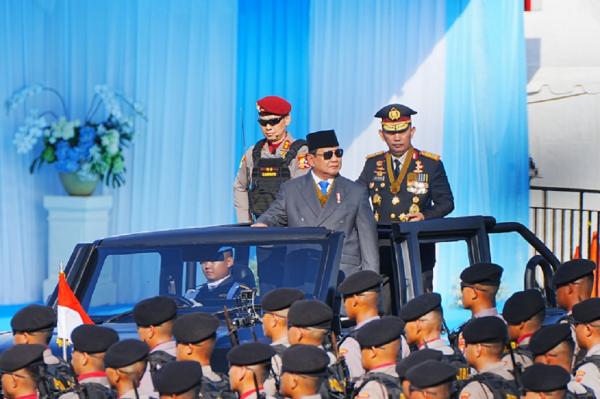Police Chief Issues 6 Strict Orders to Crack Down on Motorcycle Gangs in West Java

West Java, Indonesia – In a resolute move to curb the escalating problem of motorcycle gangs (geng motor) in West Java, Police Chief Irjen Rudi Setiawan has issued six firm instructions to law enforcement officers. These directives aim not only to dismantle existing gangs but also to implement long-term preventative measures to deter future criminal activity.
The recent surge in incidents involving geng motor, including acts of vandalism, public disturbances, and even violent crimes, has prompted swift and decisive action from the police force. Irjen Setiawan emphasized the need for a comprehensive approach that combines immediate suppression with proactive prevention.
The Six Key Instructions
- Aggressive Patrols & Roadblocks: Increased visibility of police officers through frequent patrols and strategic roadblocks, particularly during peak hours for geng motor activity (evenings and weekends). This aims to disrupt their movements and deter gatherings.
- Targeted Operations: Focus on identifying and dismantling known geng motor groups through intelligence gathering and targeted operations. This includes identifying leaders and key members.
- Strict Enforcement of Traffic Laws: Intensified enforcement of traffic regulations, especially those frequently violated by geng motor members, such as reckless riding, illegal modifications to motorcycles, and failure to wear helmets.
- Community Engagement: Strengthening partnerships with local communities, schools, and religious leaders to foster a sense of shared responsibility in addressing the problem. This includes public awareness campaigns and open forums.
- Rehabilitation Programs: Implementing rehabilitation programs for apprehended geng motor members, focusing on providing skills training, education, and counseling to help them reintegrate into society as productive citizens.
- Long-Term Crime Prevention: Addressing the root causes of gang involvement, such as poverty, lack of opportunity, and social exclusion. Collaboration with social services and other government agencies is crucial.
Irjen Setiawan stressed that these instructions are not merely about arresting individuals but about creating a safer and more secure environment for all residents of West Java. He acknowledged that the problem is complex and requires a multi-faceted approach.
“We need to tackle this issue from all angles,” stated Irjen Setiawan. “Simply arresting members is not enough. We must address the underlying factors that drive young people to join these gangs and provide them with alternatives.”
The police force is working closely with local governments and community organizations to implement these strategies effectively. Regular monitoring and evaluation will be conducted to assess the impact of the measures and make adjustments as needed. The public is encouraged to report any suspicious activity related to geng motor to the authorities.
This crackdown on geng motor demonstrates the West Java Police’s commitment to maintaining law and order and ensuring the safety and well-being of its citizens. The success of this initiative will depend on the cooperation of the community and the dedication of law enforcement personnel.






